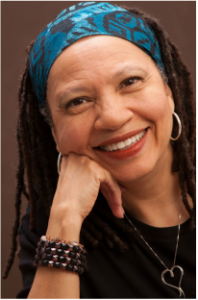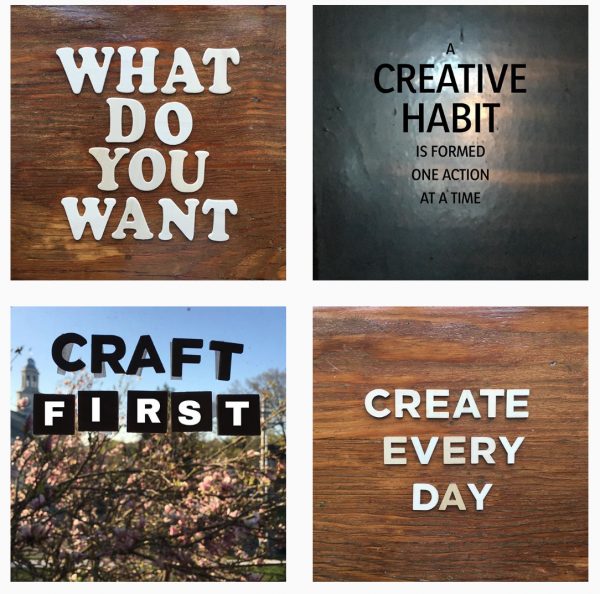One year ago, I began writing my next book. I added a daily commitment to my calendar at 5:30am, seven days a week; it said simply: “Write.”
Here I am, nearly 365 days later, having written every day.
The results? Both ordinary and astounding. I want to share what I have learned in this past year:
#1: Keep Your Creative Vision on Life Support
In truth, I feel like every day, I wrote the minimum amount of words. Some days, inspiration would hit and I would write more. Other days I pushed through resistance — these were the days that I didn’t feel an ounce of inspiration, and writing was more an obligation. Many days, I wrote a paragraph then moved on to other things.
I remember hearing this expression from someone in my mastermind group: “life support” as a way of valuing small actions of creating. The idea is that when you do a small amount of writing each day, you keep your writing alive.
The result of small steps every day? Okay, I was blown away when I added this up. From what I can tell, I have written:
- 38,000 words for the next book
- 25,000 words for the book after that
- Plus: 41,000 words in blog posts.
The prompt to “WRITE” first thing each morning only applied to writing my books, never to blogs, but it was still astounding to include that number.
Honestly, there were many days where it felt like I was failing at writing. Failing at putting words on the page. Days where I wrote the bare minimum, and felt like maybe I was an impostor.
Yet, taking a small creative action every day really adds up.
#2 The Act of Creating Can be a Boring Rote Exercise, and That’s Fine
Every day when I sat down to write, I took a photo of myself:
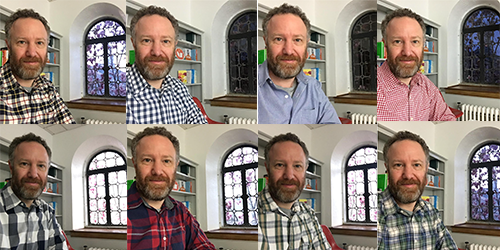
I have 365 of these, but I’ll spare you having to look at them all! Do you know what this looks like to me? A nightmare. It looks like Bill Murray in the movie Groundhog Day, where every day is exactly the same.
Now, in truth, I love routine. But I took these photos and shared them each day on social media to make a point: creative work isn’t always exhilarating, beautiful, and fun. Very often, it is work.
Many of the days where I wrote, I may have felt completely unmotivated to write, yet the time of day, the context, the expression on my face was the same as the day before.
I was showing up for my creative vision. Period.
#3 It Was Just As Easy to Create, As It Was to Not Create
This is perhaps the biggest revelation in looking back on a year of writing every day. It was as easy to have created as it would have been to not create.
I can easily remember one year ago as if it was yesterday. It is easy to consider that a year would pass without making a dent in my biggest creative goals: writing. Why? Because life is busy. Looking back, if I didn’t have all the photos, I may easily overlook that writing every day was a wonderful accomplishment. That I easily could have spent those early morning hours checking email instead.
But I wrote.
And really, how difficult was it to write every day? Not very difficult at all.
#4 Progress is Better than Perfect
Beyond sheer word count, what progress did I make in my writing? Well, midway through the year I realized that I was actually writing two books, not one. That insight gave me a lot of clarity. I aligned the books to form a series:
- Book #1: Which I am writing now and will hopefully publish this year.
- Book #2: Be the Gateway which I published in 2017.
- Book #3: Which I will publish in 2019 or 2020.
This clarity felt huge for me. It allowed me to clearly understand how to dive deep into certain topics, and then zoom out to see how everything fits together.
When I work with people in my mastermind, we begin with this concept of Radical Clarity. To have found it for my writing feels like a big achievement. Making progress, even if it doesn’t quote feel like perfection.
#5 One Habit Encourages Another
I used the daily habit of writing to start another creative daily habit: properly learning how to play the guitar. I started this late last year, and have now practiced the guitar every day since mid-December.
To make it easy, I keep a guitar in my studio as well as one in my home office. I just added a third one to my living room.
For 25 years, I dabbled with the guitar, but never properly learned how to play it. In the past few months, I’ve made more progress in truly building my skills and understanding of the instrument than I did in the previous quarter century.
Wow, just writing that feels unbelievable. But it’s true. That is the power of a small daily creative habit.
If you could establish one creative habit for a year, what would it be?
-Dan
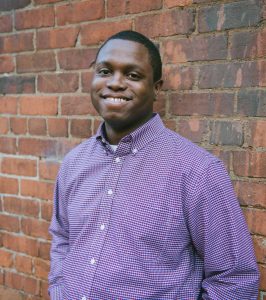 How can one man write 10 books per year, while working a full-time job, going to law school in the evenings, and raising a young family? Today we find out. I am so excited to share my interview with author Michael La Ronn. He has published more than 40 books in the past six years: science fiction, fantasy, and nonfiction books on writing.
How can one man write 10 books per year, while working a full-time job, going to law school in the evenings, and raising a young family? Today we find out. I am so excited to share my interview with author Michael La Ronn. He has published more than 40 books in the past six years: science fiction, fantasy, and nonfiction books on writing.
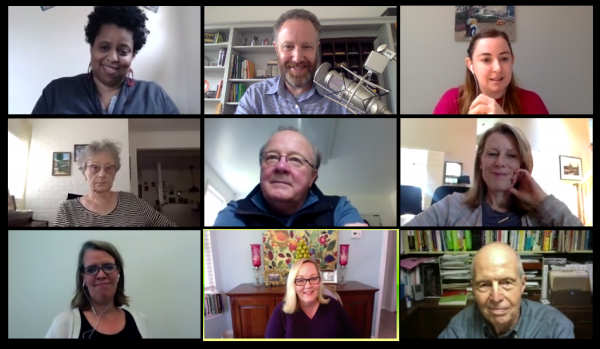
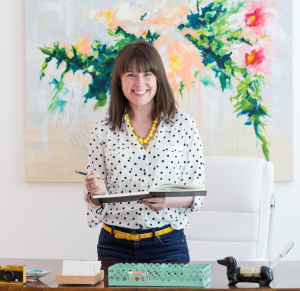 The other day I was looking at Instagram, and I saw a series of videos from an artist I follow, Megan Carty. She was in her studio, working on a series of paintings for a gallery show she is preparing for. She looked directly in the camera and said this:
The other day I was looking at Instagram, and I saw a series of videos from an artist I follow, Megan Carty. She was in her studio, working on a series of paintings for a gallery show she is preparing for. She looked directly in the camera and said this: